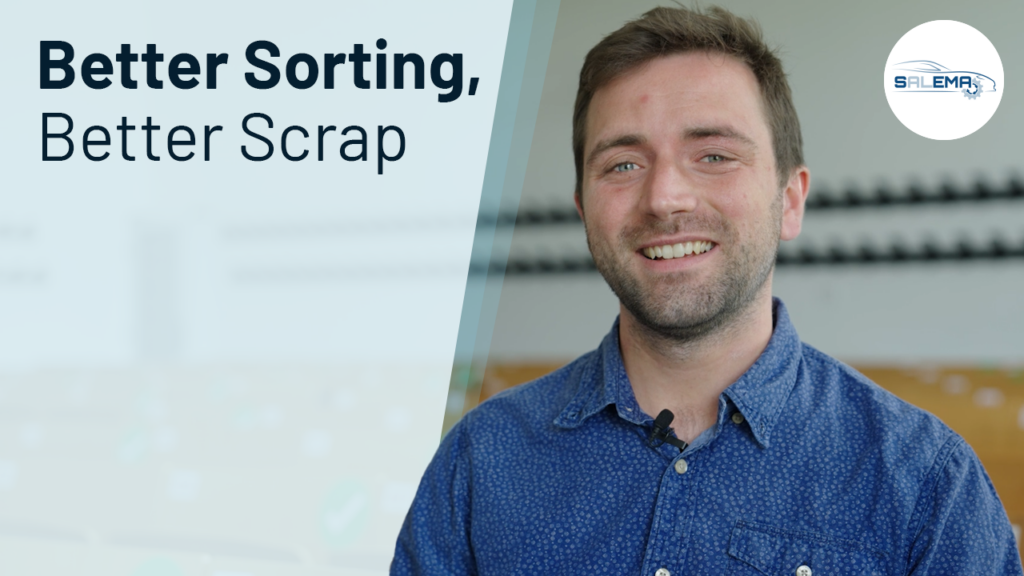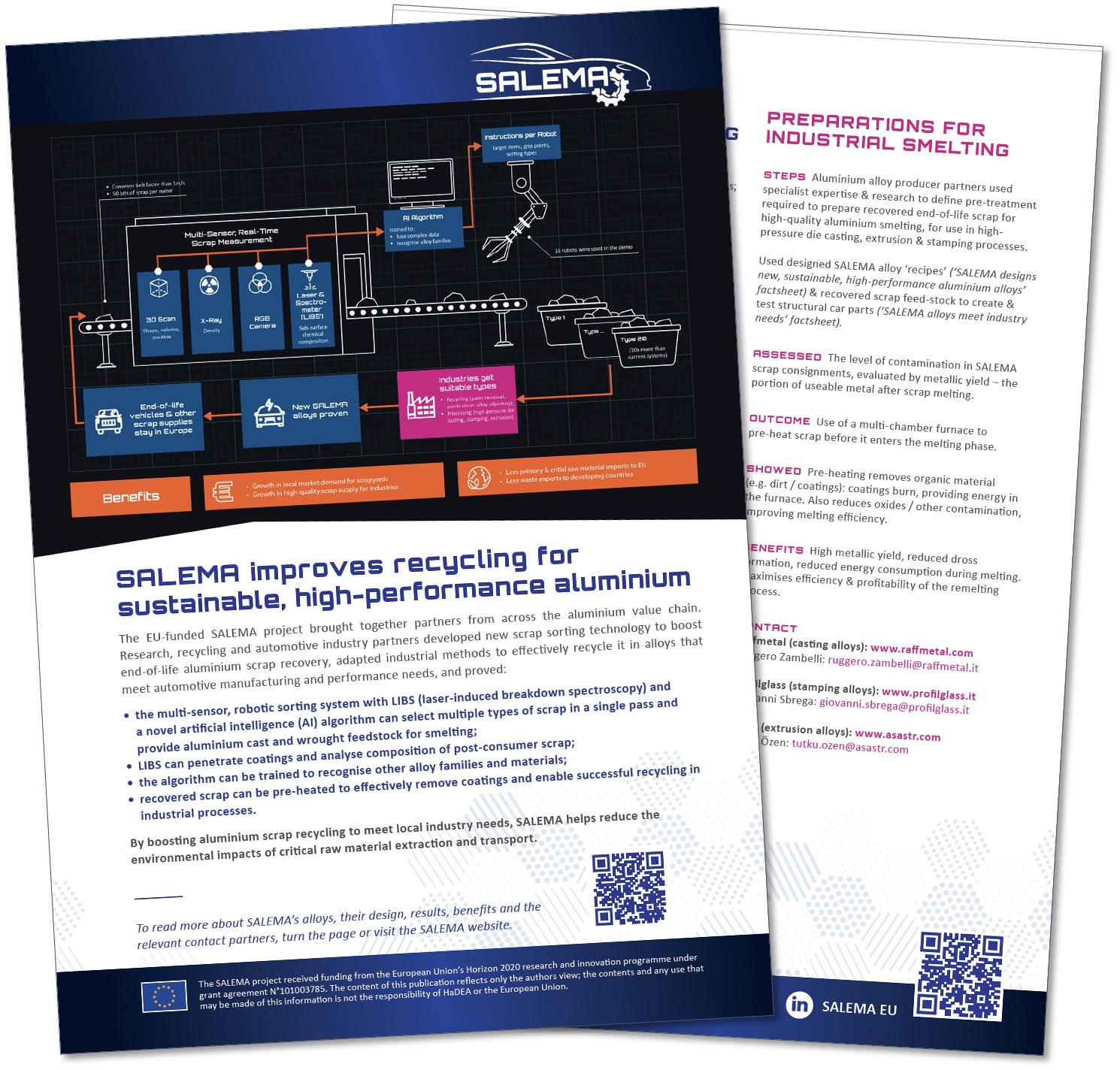
Short interview: Robert Baudinet, University of Liège
Robert Baudinet is a research engineer at the University of Liège, where he and colleagues in the GeMMe@ULiege laboratory are developing custom sensor-based sorting solutions for the recycling industry.
In SALEMA they developed a scrap metal sorting system using ‘LIBS’ – laser-induced breakdown spectroscopy. In this system, lasers fired into the surface of scrap metal pieces reveal their chemical composition as detected by a spectrometer; this information and other details are rapidly processed by an innovative algorithm, which then provides individual instructions to a line of scrapyard robots about which pieces to sort from a moving conveyor belt. Robert and his colleagues have worked closely with the COMET Traitement scrapyard of Groupe COMET to test this out.
We asked him a few quick questions.
Thanks to SALEMA, in future cars will be…?
More sustainable. That’s for sure!
How has your lab contributed to SALEMA?
We are developing a sorting system that aims to extract the valuable aluminium alloys out of the shredded metals coming from recyclers. And in the framework of the SALEMA project we are developing a special sorting system using ‘LIBS’. So that is a special laser that can identify the various alloys within a mix of aluminium alloys.
What makes SALEMA unique?
We have gathered all the actors of the value chain of aluminium. We are directly answering the challenges of the industry.
See the quickfire interview
See Robert in the SALEMA final event
How will this help to improve our future?
SALEMA will allow to integrate second-hand aluminium into the production lines of regional or local or European companies. And because of that it will definitely reduce the impact of the production of the future cars. In addition to that, it will also provide a better sovereignty for the European region, because we will have a source of aluminium, of primary materials, right on our soil.
Would you drive an electric car made with SALEMA alloys?
Yeah, I would definitely drive an electric car with SALEMA alloys. And I see no problem in that, because we have a lot of professionals wondering about the challenges and the potential changes that need to be made in order to include new alloys, recycled alloys in the car industry.
I am really confident with the the outcomes of this project!
